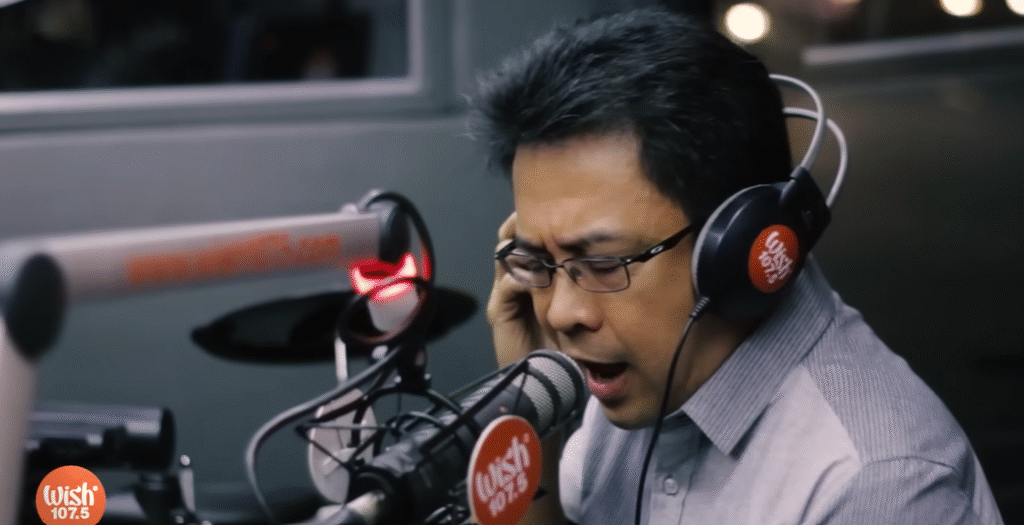The warmth in Hajji Alejandro’s voice extended well beyond romantic tunes. His music encapsulated Filipino memories for decades, including quiet Sunday mornings, romantic evenings, and radio dedications. However, on April 21, 2025, the voice stopped speaking. His family confirmed that he had passed away from stage 4 colon cancer, which his partner Alynna Velasquez had disclosed only a few weeks prior. Even in his last chapter, Hajji kept his legacy out of the public eye by quietly and privately enduring one of life’s most cruel illnesses.
Those near him had become clearly alarmed in recent weeks. Subtle indications of physical weakness and the singer’s withdrawal from the spotlight suggested a more serious struggle. Hajji, however, never made his illness a show. He opted for peace over the media. Following a one-day private wake, he was cremated, and his remains are now interred at Heritage Park. It was a solemn farewell to a man whose songs used to fill stadiums.
| Hajji Alejandro: Life and Legacy Summary |
|---|
| Full Name: Angelito Toledo Alejandro |
| Stage Name: Hajji Alejandro |
| Birth Date: December 26, 1954 |
| Death Date: April 21, 2025 |
| Age at Death: 70 |
| Cause of Death: Stage 4 Colon Cancer |
| Spouse: Rio Diaz (until 2004, deceased) |
| Partner: Alynna Velasquez |
| Children: Rachel Alejandro, Ali Diaz Alejandro |
| Career Start: 1970s |
| Signature Songs: “Nakapagtataka,” “May Minamahal,” “Kay Ganda ng Ating Musika” |
| Legacy Title: “Kilabot ng mga Kolehiyala” |
| Reference: Wikipedia – Hajji Alejandro |
Hajji joined a generation of entertainers who recognized that dignity should never be sacrificed for fame by opting for discretion over drama. He was remarkably compared to individuals such as Chadwick Boseman, who famously kept his own colon cancer a secret until his last days. Both men, who were highly regarded, chose to remain silent, avoiding the spectacle for fans and instead allowing their work to serve as evidence.

Digital spaces were inundated with tributes in the days following Hajji’s passing. His close friend and fellow OPM legend, Nonoy Zuñiga, reflected on their final performance together, which is now tinged with nostalgia. Chef Barni Alejandro’s emotional Instagram performance of her father’s song “Ang Lahat ng Ito’y Para Sa’Yo” perfectly captured the grief of a daughter and the adoration of a lifelong fan. Rachel Alejandro, a well-known singer herself, promised to uphold her father’s legacy by declaring that his influence and voice would endure.
There is more to Hajji’s legacy than just a compilation of love songs. It is a catalog of tenderness that spans decades and an archive of Filipino emotion. His work was remarkably consistent, never manufactured or gimmicky. Hajji Alejandro’s authenticity feels incredibly refreshing in a time when digital filters and viral fame are shaping society more and more. His music, which is full of genuine vulnerability, is still very relevant today.
However, his passing has brought attention to a health issue that is subtly spreading throughout Filipino homes. Due to stigma, limited access to preventive screening, and a general reluctance to discuss gastrointestinal symptoms, colon cancer—currently one of the main causes of cancer-related deaths among men in the Philippines—is frequently discovered too late. Despite the alarming statistics, change has been gradual. Those figures now have a human face thanks to Hajji’s passing. It emphasizes the necessity of prompt action and, perhaps more significantly, the role that public figures play in normalizing discussions about men’s health.
Since Hajji’s diagnosis was made public in March, medical professionals have been particularly outspoken. Although the prognosis for stage 4 colon cancer is dismal, survival rates are considerably higher when the disease is detected early. Colonoscopies, which are frequently avoided out of embarrassment or fear, may save lives. Regretfully, Hajji’s cancer was discovered after it had progressed, just like many others. Regardless of whether the delay was systemic or personal, it highlights a critical problem in preventive healthcare.
His tale reflects Filipino culture, which is stoic, private, and nearly impervious to vulnerability. Many people, particularly men of his generation, believe that it is more honorable to endure pain in silence rather than seek medical help. Despite its noble appearance, that way of thinking can be extremely restrictive. Now, Hajji’s last months could be a silent reminder to others to get help as soon as possible, consult a doctor, and take symptoms seriously.
The extent of his influence is reflected in the public’s grief after his passing. Hajji was devoid of controversy, political clamor, or scandal, in contrast to many other celebrities. His work was grounded in emotion, tradition, and melody, and it existed in a purer realm. His most well-known songs, such as “Tag-Araw, Tag-Ulan” and “Panakip-Butas,” are timeless expressions of Filipino musical identity rather than just being sentimental.
Even though he is no longer physically present, the songs are still there. His music will continue to influence feelings long after the headlines fade, whether it is played at weddings, serenaded at karaoke nights, or looped on local radio. The remarkable durability of genuine art is that it surpasses even its creator in longevity.
Health professionals have recently joined the music community in commemorating Hajji by educating the public through his story. Early screening campaigns are gaining traction. Once a silent killer, colon cancer is now making headlines. Though not intentionally, Hajji’s passing has had a big influence on this change.
